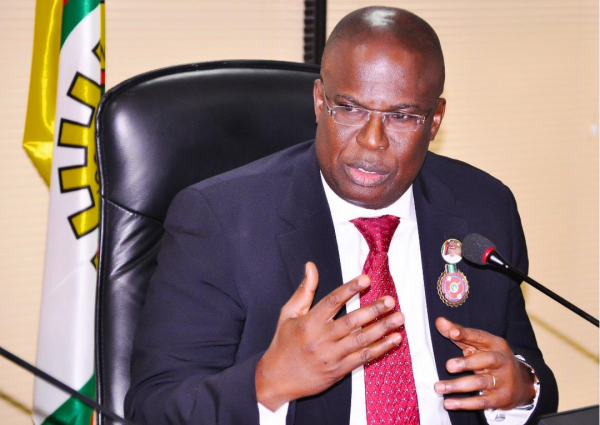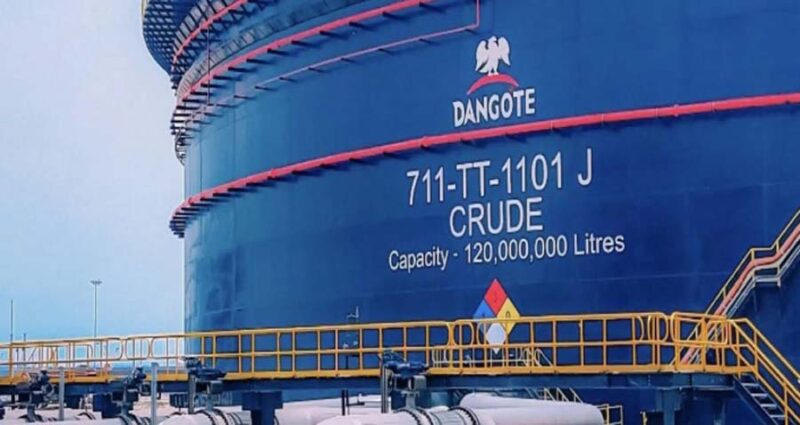Business
Nigeria discovers 206Tcf of gas, eyes another 600Tcf

Minister of State for Petroleum Resources, Timipre Sylva, says the country has accidentally discovered 206 trillion cubic feet of gas reserves while in search of crude oil.
He stated this at a News Agency of Nigeria forum on Sunday, adding that the country could discover additional 600 trillion cubic feet reserves to enable it to achieve the desired development required of a gas nation.
“We have a lot of gas in this country. We have 206 trillion cubic feet of gas reserves,” Sylva said.
He also said, “This number is already discovered in gas reserves and this 206 trillion cubic feet reserve was found while looking for oil; so it was accidentally discovered.
“We were actually going to look for crude oil and we found gas, and in that process of accidentally finding gas, we have found up to 206tcf.
“So, the belief is that if we really aim to look for gas dedicatedly, we will find up to 600 trillion cubic meters of gas.”
Sylva noted that the COVID pandemic had some positive impact on the Nigerian oil and gas sector despite its negative effects on the global economy.
He said the pandemic had forced Nigerians to take over the running of the oil and gas industry as most of the expatriates working in the sector had to travel to their countries because of the lockdown.
“They have to rush out so that they will be locked down in their countries, and when that happened, it means that we lost a lot of expatriate personnel,” he added.
“But the good side of COVID-19 for us is that our Nigerians were able to step into their shoes.”
The minister said the oil-producing communities where the Port Harcourt Refinery Company is located are being carried along in the facility’s rehabilitation.
“It is not the government that will engage directly with the communities; we are the government and we have been able to give the contract to the EPC Contractors, part of the EPC Contractors’ role is engagement with communities,” he said.
He noted that the rehabilitation of the refinery was done through international tenders and that international companies responded to and that the process involved consultants.
The Nigerian National Petroleum Corporation on April 6 signed the EPC contract with Maire Tecnimont SPA, an Italian company, for the rehabilitation of the PHRC.
Sylva also reiterated the need to deregulate the sector, adding that it was necessary for the country to move forward.
“I will say that my stand on fuel subsidy and deregulation is well known. I strongly believe that for this country to move forward, for our economy to make the progress it desires, we need to have a market-driven pricing of products,” he added.
“A situation where you produce something at a certain cost and you have to sell it at a lower cost to people because you are taking some of that burden off the people is not the best.
“It is a very desirable thing but it is also not too sustainable because what happens is that you produce it for N10, you sell it for N5; tomorrow, you produce it again at N10, you add N5 from somewhere, produce it again at N10 and sell it for another N5.
“So, the losses increase and compound on a daily basis and those accumulated losses have brought us to where we are.”
Business
Naira loses N81 to dollar in one day

Naira loses N81 to dollar in one day
The naira lost N81.34 against the US dollar at the foreign exchange market on Thursday
FMDQ data showed that the naira fell to N1,154.08 per dollar on Thursday from N1,072.74 on Wednesday.
This represents a 7.04 per cent loss against the dollar compared to N1,072.74 per dollar traded the previous day.
At the parallel market, the naira also depreciated N1,100 per dollar on Thursday from N1, 040 on Wednesday.
This is the second time the naira would be depreciating against the dollar in three days amid fears of depleting foreign exchange reserves.
Nigeria’s foreign reserves dropped to $32.29 billion as of April 15.
Business
Govt paying N600bn for fuel subsidy monthly — Rainoil CEO

Govt paying N600bn for fuel subsidy monthly — Rainoil CEO
The CEO of Rainoil Limited, Gabriel Ogbechie, has claimed that the federal government resumed the payment of the controversial fuel subsidy following the devaluation of the Naira in the foreign exchange market.
Ogbechie made this statement on Tuesday during the Stanbic IBTC Energy and Infrastructure Breakfast Session held in Lagos.
He pointed out that with Nigeria’s daily fuel usage at 40 million liters and the foreign exchange rate at N1,300, the government’s subsidy per liter of fuel falls between N400 and N500, culminating in a monthly total of approximately N600 billion.
He said; “When Mr. President came in May last year, one of the things he said was that Subsidy is gone. And truly, the subsidy was gone, because immediately the price of fuel moved from 200 to 500 per liter. At that point truly, subsidy was gone.
“During that period, Dollar was exchanging for N460, but a few weeks later, the government devalued the exchange rate. And Dollar moved to about N750. At that point, subsidy was beginning to come back.
READ ALSO:
- North Central Support Group rejects Northern Elders, pledges allegiance to Asiwaju
- Gunmen kidnap 2 FRSC officers along Abakaliki-Enugu highway
- Driver killed, 16 passengers abducted on Abuja-Lokoja road
“The moment the two markets officially closed, officially the market went to about N1,300. At that point, that conversation was out of the window. Subsidy was fully back on petrol. If you want to know where petrol should be, just look at where diesel is. Diesel is about N1,300 and petrol is still selling for N600.
Furthermore, he said that NNPC being the only petrol importer in the country implies that there is an ongoing subsidy, as prices had to be fixed.
Earlier yesterday, the former governor of Kaduna State, Nasir El Rufai, said the federal government is spending more on petrol subsidy than before.
In addition, the Special Adviser to the President on Energy, Mrs. Olu Veŕheijen, said that the Federal Government reserves the right to pay fuel subsidy intermittently to cushion hardship in the country.
“The subsidy was removed on May 29. However, the government has the prerogative to maintain price stability to address social unrest. They reserve the right to intervene.
“If the government feels that it cannot continue to allow prices to fluctuate due to high inflation and exchange rates, the government reserves the right to intervene intermittently and that does not negate the fact that subsidy has been removed,” she said.
Govt paying N600bn for fuel subsidy monthly — Rainoil CEO
Business
Breaking: Dangote brings diesel price down to N1000/litre

Breaking: Dangote brings diesel price down to N1000/litre
Dangote Petroleum Refinery has announced a further reduction in the price of diesel.
When it commenced operation a few weeks ago, Dangote Petroleum Refinery pegged the price of diesel as N1,200.
While rolling out the products, the refinery supplied at a substantially reduced price of N1,200 per litre three weeks ago, representing over 30 percent reduction from the previous market price of about N1,600 per litre.
READ ALSO:
- Kano anti-corruption agency slams fresh charges against Ganduje
- Troops kill ISWAP Commanders, 30 other terrorists
- Ooni of Ife dismisses agitators of Yoruba nation
However, on Tuesday, a further reduction of N200 was noticed in the price, with the product now pegged at N1,000.
This significant reduction in the price of diesel, at Dangote Petroleum Refinery, is expected to positively affect all the spheres of the economy and ultimately reduce the high inflation rate in the country.
The President of Dangote Group, Aliko Dangote, had during the Eid-el-Fitr celebration said if the cost price of diesel comes down, the inflation rate will be substantially reduced.
Dangote spoke when he visited President Bola Tinubu in his residence in Lagos State to celebrate the end of the Ramadan fast with him.
Breaking: Dangote brings diesel price down to N1000/litre
-

 metro6 days ago
metro6 days agoTroops neutralise 188 terrorists, rescue 133 hostages in assault operations
-

 News6 days ago
News6 days agoFG gives update on where fleeing Binance executive is hiding
-

 Entertainment6 days ago
Entertainment6 days agoTolani Baj expresses love for Bobrisky
-

 metro6 days ago
metro6 days agoViral video: Edo CP orders trial of officer threatening people with gun
-

 News5 days ago
News5 days agoNLC, TUC jointly propose N615,000 new minimum wage
-

 News7 days ago
News7 days agoNew electricity tariff may drop if naira rebounds further – Adelabu
-

 metro7 days ago
metro7 days agoBreaking: Bobrisky sentenced to six months imprisonment without option of fine
-

 Business6 days ago
Business6 days agoNaira continues gain, sold N1,150/$ at parallel market






















